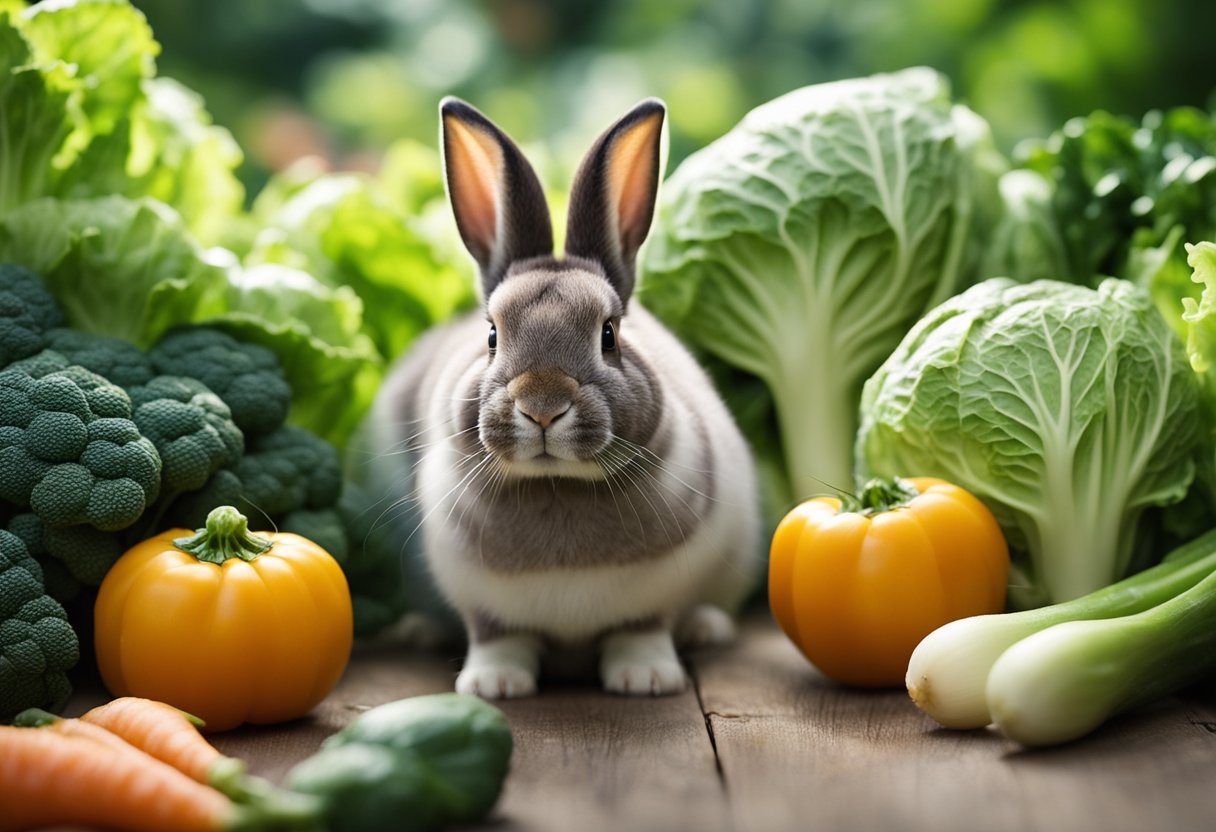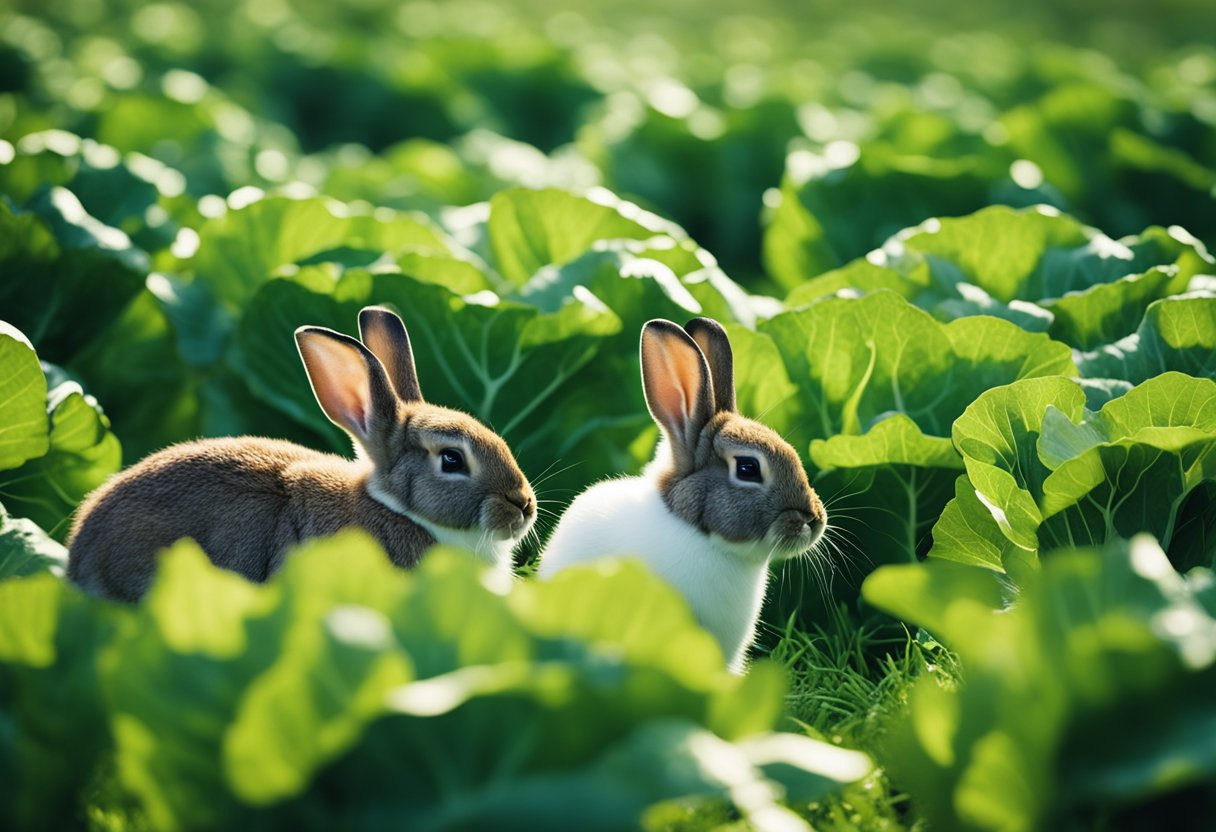Many pet owners find themselves wondering about the ideal diets for their rabbits. Regarding cabbage, people have different ideas. Though they can eat cabbage, it should only be given sparingly to prevent intestinal problems. Knowing how to correctly include cabbage into their diet can assist in maintaining their happiness and health. Although cabbage has nutritional value like vitamins and fiber, one should be careful. In rabbits, too much cabbage can cause blowing and flatulence. The safe methods to feed cabbage to rabbits, its advantages, and any possible hazards will be discussed on this page. Pet owners can decide on the food for their rabbit with knowledge by weighing the benefits against the possible negatives of cabbage. Maintaining general health depends on their rabbit’s diets being balanced.
Nutritional Considerations for Rabbits

Cabbage can provide nutritional benefits for rabbits, but there are also potential risks to consider. It’s important to understand both the advantages and any limitations when incorporating cabbage into a rabbit’s diet.
Health Benefits of Cabbage for Rabbits
One leafy green vegetable with many nutrients rabbits may find helpful is cabbage. Its water content is high, which helps one stay hydrated. For bunnies who might not drink enough water, this can especially be beneficial. Important for blood coagulation and bone health, vitamin K is one of the vitamins cabbage also offers. It also boasts fiber, which promotes intestinal health. Some rabbits find a nice pleasure in a modest amount of cabbage. A rabbit’s whole diet should not include cabbage, hence it should only make a little portion when fed. Still, the major meal is fresh hay.
Potential Risks and Limitations
Although cabbage is good for your health, some hazards should be taken into account. Too much cabbage could cause bloating and digestive problems like gas. This vegetable should be introduced gradually if one wants to avoid digestive issues. Particularly baby rabbits should only receive tiny amounts of cabbage beginning at around seven weeks old. No two cabbages are exactly like one another. Varieties such as red cabbage or savoy could affect general health and digestion differently. While feeding cabbage to rabbits, moderation is absolutely important. Maintaining their health and well-being depends on their food being balanced.
Feeding Cabbage to Rabbits

Giving cabbage to rabbits calls for careful preparation and consideration of appropriate quantities. This guarantees that they get the advantages free from any stomach problems. Following these rules will enable the rabbit to stay healthy while savoring this veggie.
Appropriate Quantities and Frequency
Rabbits should get cabbage in moderation. Usually enough for a single serving is a tiny bit—between one and two leaves or a few ounces. Overindulging in cabbage could cause stomach issues including bloating and gas. You should feed cabbage two to three times a week. This periodicity guarantees a varied diet and lets rabbits enjoy the veggies. Another crucial aspect is observing their response to cabbage. Should the rabbit exhibit symptoms of an upset stomach, one could have to cut back on frequency or quantity.
Preparation and Serving Suggestions
cabbage should be well cleaned to eliminate any pesticides or dirt before serving it. The best choice is fresh, green leaves. Steer clear of employing any damaged or wilted items since the rabbit might not benefit from them. One can present cabbage raw as a crisp delicacy. Reducing it into smaller parts will help rabbits chew more readily. To make a sensible dinner, some owners decide to combine cabbage with other safe veggies. Remember that rabbits have a diet heavy in fiber, thus pairing cabbage with hay is a wonderful approach to assist their digestive condition.
Frequently Asked Questions
Many rabbit owners want clarity on particular elements of giving their animals cabbage. These questions cover nutritional concerns, safety, and suitability related to cabbage intake for rabbits.
Is it safe for rabbits to consume cabbage daily?
Not every day should rabbits consume cabbage. Although it is a component of their diet, it is best presented in moderation. One can get intestinal issues from too much cabbage.
Could ingesting cabbage be harmful to rabbits?
For rabbits, too much cabbage can cause flatulence and bloating. Goitrogens and oxalates abound in it, and if taken in excess they could compromise their health. It is advised to eat small amounts to prevent possible damage.
Are the leaves of cabbage suitable for rabbits to eat?
Indeed, cabbage leaves are fit for rabbits. One can enjoy red and green cabbage leaves. Introducing them gently helps to prevent any intestinal problems.
Can rabbits have a diet that includes both cabbage and carrots?
Rabbits can eat carrots and cabbage side by side. Both offer vital elements. But considering their great sugar load, carrots should be used sparingly.
Is red cabbage an appropriate food choice for rabbits?
Rabbits would be better off eating red cabbage. It has the same nutritional value as green cabbage. It should be eaten in moderation, as other vegetables.
What types of vegetables should rabbits avoid?
Rabbits should steer clear of starchy foods including potatoes and corn. Furthermore, avoid onions and garlic as these can be poisonous. One should keep to safe foods and leafy greens.
conclusion
In essence, even if rabbits can consume cabbage, it should be given in moderation in line with a balanced diet. As well as fiber, which can help a rabbit’s general health, cabbage offers vital vitamins C and K. But cabbage shouldn’t be a mainstay in their diet because of its high water content and possible to induce gas or digestive disturbance. Gradually introduce cabbage and keep an eye on your rabbit to see if it reacts adversely. Cabbage should be only one element of a balanced diet including hay, fresh vegetables, and pellets if one wants the best health.